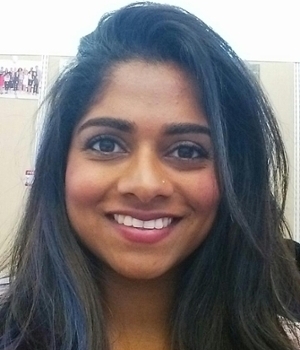
Program and year: 1st Year, MSPH in Environmental Health and Epidemiology
Undergraduate university and major: University of Illinois at Urbana-Champaign; Bachelor of Science with Distinction in Earth, Society, and Environmental Sustainability
Minors: Molecular Cellular Biology, Chemistry
Before coming to Rollins: I was/still am an ORISE fellow at the Centers for Disease Control and Prevention National Center for Environmental Health’s Office of Policy and Program Evaluation.
Why I chose Rollins: I chose Emory's MSPH program in Enviromental Health-Epidemiology because it was one of the few schools to offer this kind of dual program. Additionally, being able to have meaningful work experience in public health while in school was important to me, and Atlanta offers that. Towards the end of my decision process, I was choosing between Emory and many other top public health programs in DC, Baltimore, NYC, and Boston, and when it came down to it, I chose Emory because:
- There were professors here who were involved with research I am hoping to turn into my thesis (clean cookstoves work), and which I may go on to develop into a PhD thesis.
- I was awarded the best financial package here.
- I would be able to keep my ORISE fellowship at CDC while pursuing non-governmental public health work.
Why I chose EH: I chose Emory's dual MSPH program in enviromental health and epidemiology because it was a perfect combination of the skills I wanted to gain and the topics I am interested in working in. Additionally, it is one of the few schools to offer this kind of dual program.
Research interests: Global environmental health, specifically related to clean cookstoves and/or global humanitarian emergencies. I am also interested in urban health issues and gun violence.
Career goals: My dream job is to become the Dr. Sanjay Gupta for environmental health and exposing more of the public to the issues we are working to fix. Until that time, I would like to work for the UN, CDC, WHO, or a similar organization to improve adoption of clean burning cookstoves globally.
Three favorite things about Rollins:
1. The culture here seems so supportive and collaborative.
2. The faculty and staff here are always willing to meet and discuss anything.
3. My fellow classmates are so impressive, but so humble. I have met many inspirational people
that view their accomplishments as nothing more than just doing what is right.
Favorite classes: I am still in my first semester, but so far it is Human Toxicology.
Clubs and extracurriculars: I work through REAL with the Emory HERCULES Community Outreach and Engagement Core and am also still an ORISE fellow at the CDC’s National Center for Environmental Health’s Office of Policy. I am also a part of the Rollins Environmental Health Action Coalition.
Advice for prospective students: Visit schools and talk to professors you might be interested in working with! That really helped me decide on Rollins.
My favorite thing about Atlanta is: The weather and beautiful nature, especially all the hiking that is within an hour's drive!
Anything else you’d like to add that would be helpful for prospective applicants?: If finances are an issue keeping you from committing to a school, be sure to let the schools know! They might not be able to help, but it doesn’t hurt to ask. Good luck!
Recently won the 6th Annual GA-AHMP 2016 John Scarano Memorial Scholarship.: As one of four award recipients, I received a $1,000 scholarship award, a commemorative plaque, and a complementary one-year membership to the Georgia Chapter of the Alliance of Hazardous Materials Professionals. I'm honored and excited to meet other professionals working to keep people safe from harmful exposures.
I was asked to give a TED Talk. It was for the 2016 TEDMED at CDC event back in October and my talk was called, "How I Found My Public Health Niche in a Silent Killer: Dirty-Burning Cookstoves." In the talk, I discussed my immigration story and passion for the public health issue of dirty-burning cookstoves to illustrate the importance of how identities and experiences can help inform our public health passions. Look out for a link to the talk soon!

